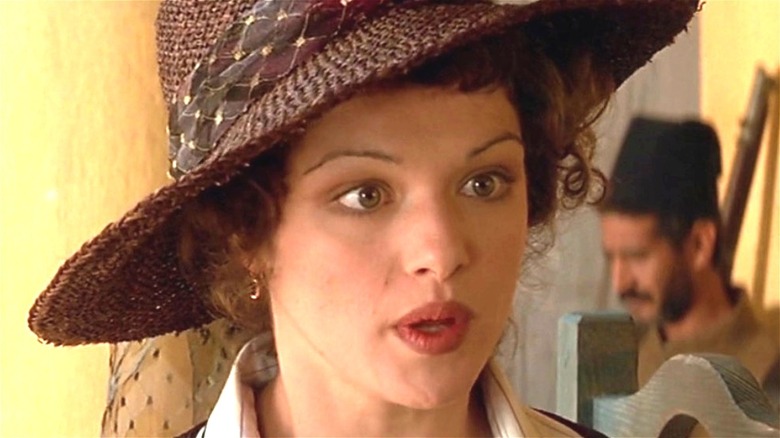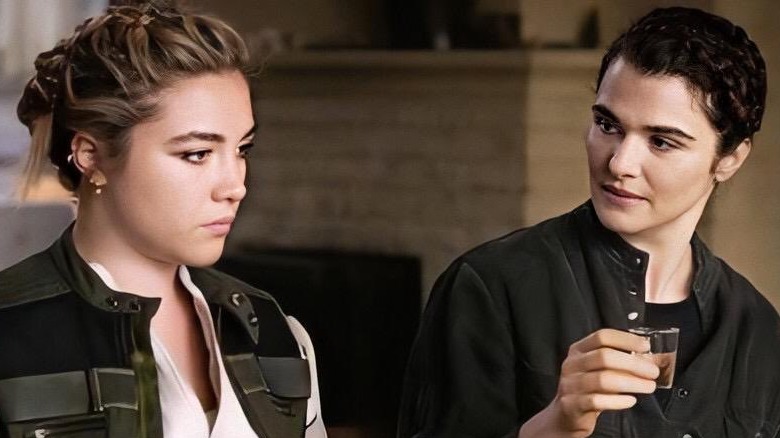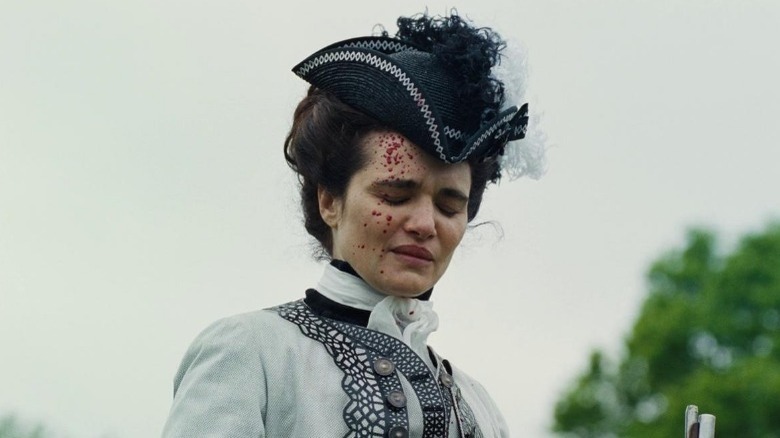Where Is Evelyn From The Mummy Now?
Universal's 1999 remake of "The Mummy" was a cultural reset. It changed action movies, helping usher in the era of CGI villains and heavily comedic heroes. Rachel Weisz's Evelyn Carnahan (later O'Connell) propels the action of the first "Mummy" film. She is the one who recognizes the significance of the puzzle box that leads them to the city of Hamunaptra. She reads the incantation that awakens Imhotep, and it is her soul that the undead priest wants to give his dearly departed girlfriend.
Evelyn is a huge part of the "Mummy" franchise's appeal. Fans love the movie's blend of action, romance, and comedy — all of which Weisz contributes to. She channels screwball comediennes of the '30s for her sparkling performance, as The Stranger noted in its review, stating that Evelyn has "all the spunk and ditzy charm you'd expect from a heroine who can proudly proclaim she's not just smart... she's a librarian!"
The "Mummy" series fell off when Weisz failed to return for "The Mummy: Tomb of the Dragon Emperor," the third installment in the "Mummy" series. A representative of Weisz told Digital Spy that she didn't want to go to China and spend so much time away from her newborn son. After leaving the "Mummy" franchise, Weisz went on to work steadily in movies both big and small. But her most critically acclaimed work of late has been on a much smaller scale than "The Mummy."
From Egyptian treasure to Oscar gold
Rachel Weisz won an Academy Award not long after "The Mummy Returns" for her performance in the 2005 adaptation of John Le Carré's "The Constant Gardener." The film centers on Ralph Fiennes' Justin Quayle, who tries to solve the murder of his wife. Weisz plays the ill-fated wife, Tessa, an Amnesty activist in Kenya. "The movie is a progress back into her life," wrote Roger Ebert, "and a journey of discovery for Justin, who discovers a woman he never really knew."
Weisz also has had some brief dalliances with other blockbuster franchises post-"Mummy." The same year she starred in "The Constant Gardener," she made a foray into comic book adaptations with the cult favorite "Constantine." She'd go on to star in "The Bourne Legacy," opposite Jeremy Renner and Edward Norton, before doing her time in the MCU, playing Melina Vostokoff in "Black Widow" in 2021. Vostokoff is something of a mother figure to Scarlett Johansson's Natasha Romanoff and Florence Pugh's Yelena Belova. As of yet, there's been no word if Vostokoff will return to the MCU, but there's little doubt fans would adore seeing her again.
While Wiesz's experience with blockbusters is extensive, her most notable work of late has been in more indie fare. Despite being married to a man (specifically Daniel Craig, a.k.a. James Bond), Weisz has become what Vice called "the Unofficial Straight LGBTQ Ambassador," and it's her work in the indie drama sphere that has earned her that title.
Rachel Weisz is doing it for the girls
Weisz first worked with Greek director Yorgos Lanthimos on his 2015 black comedy "The Lobster" where she played a woman searching for love before she gets turned into an animal. She would reunite with Lanthimos for 2018's "The Favourite," in which she plays Lady Sarah Churchill. Lady Sarah starts the film as the titular "favourite" of Queen Anne, played by Olivia Colman, as well as her secret girlfriend. Emma Stone plays Abigail Masham, who woos the Queen away from Lady Sarah in an attempt to stay in power at court. Colman won an Academy Award for her performance as Queen Anne, the apex of the unlikely love triangle.
The same year as "The Favourite," Weisz starred in "Disobedience," opposite Rachel McAdams. The drama focuses on two women from the Orthodox Jewish community who try to reconcile their love for each other with their sometimes overbearingly strict community. Weisz's performance in "The Favourite," combined with "Disobedience" and the queer community's recent claiming of "The Mummy" franchise (as noted by the Mary Sue, i-D, and Tor), has vaulted Weisz into queer icon status.
Weisz's queer turn may have something to do with the fact that she's primarily focused on women-centered stories. "I really enjoy all the thousands of movies I've seen about men," she told the New York Times. "I mean, there are some great masterpieces. But there's just a dearth of ones about women. I love women. Women are just really fascinating and different to men." Fans can likely expect this trend to continue with Weisz's future projects.


